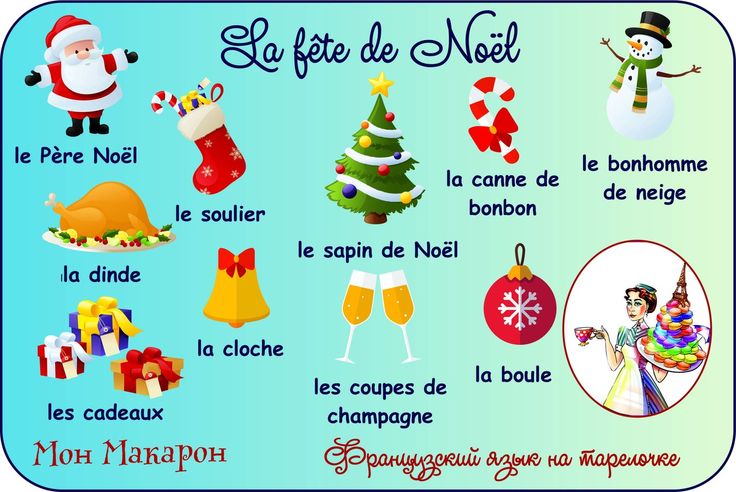Decimas de navidad: Espinelas de Navidad |Trova boricua
Seis décimas de Navidad / por Salvador Moreno
Registro bibliográfico
- Título:
Seis décimas de Navidad / por Salvador Moreno - Autor:
Moreno, Salvador, 1916-1999 - Publicación: Alicante : Biblioteca Virtual Miguel de Cervantes, 2016
- Notas de reproducción original:
Edición digital a partir de Cuadernos Hispanoamericanos, núm. 132 (diciembre de 1960), pp. 394-395
132 (diciembre de 1960), pp. 394-395 - Forma/género:
texto, texto
- Idioma:
español - Encabezamiento de materia:
- Poesía española — Siglo 20º
- CDU:
- 821.
 134.2-1″19″
134.2-1″19″
- 821.
- Documento fuente:
Cuadernos Hispanoamericanos. Núm. 132, diciembre 1960 - URI: https://www.cervantesvirtual.com/nd/ark:/59851/bmc030v1
Ampliar imagen
Edición digital a partir de Cuadernos Hispanoamericanos, núm. 132 (diciembre de 1960), pp. 394-395
132 (diciembre de 1960), pp. 394-395
Citar obra
- BibText
- RIS
Datos enlazados
RDF de esta obra
La Biblioteca Virtual Miguel de Cervantes publica su catálogo como datos abiertos a través del vocabulario Resource Description and Access (RDA) en data.cervantesvirtual.com
La dcima puertorriquea como instrumento de evangelizacin
LA DCIMA PUERTORRIQUEA
COMO INSTRUMENTO DE EVANGELIZACIN
Por Hayde Reichard de Cancio, PHD
(c) CopyRight – Prohibido copiar, reproducir
Papa Francisco: mensaje de Navidad
Mensaje del Papa: una Navidad con Jess
El sueo de Mara en la Navidad
Carta del nio Ratzinger a Jess en la Navidad
* Msica de fondo: dcima “Divino Maestro”;
cantado por Luisito Morales
Ramos, “El
Montaero”, 1928
ASTA UNA OJEADA al decimario puertorriqueo para conocer
la religiosidad del pueblo
isleo. Desde
Desde
los siglos XIV y XV, en
Espaa se haban
utilizado las “glosas”,
para educar
al pueblo sobre el credo
catlico.
La copla y dcima puertorriquea,
de ndole
didctico religiosas, tienen
sus races en
estas “glosas”. No cabe
la menor
duda que las Misiones religiosas,
de los
Siglos XV-XX, que se efectuaron
por todo
el pas, calaron muy hondo
en nuestro jbaro.
Es interesante estudiar
a travs del decimario
puertorriqueo los conocimientos
sobre el
cristianismo y la fe catlica
que tena el
versador.
* Pintura: Nacimiento en la Capilla del Cristo
por Erasmo Mayorga.
Dentro de los temas que abarca este “decimario”,
aparecen las “dcimas religiosas
y las
bblicas”. La Historia
Sagrada, la litrgica
y las devociones son los
principales temas
de las dcimas.
Aunque el jbaro en su inmensa mayora no
saba leer ni escribir
es admirable como
ste conserv en su memoria
histrica las
prdicas y enseanzas que
recibi de los
predicadores y de aquellos
dueos de haciendas
que conocan algo de letras.
La temtica
principal es Jess, su
madre Mara y los
Santos Reyes. Conocemos
por el versificador
hechos como la Anunciacin
del Hijo de Dios:
| Al cumplirse el tiempo de las profecas segn Jeremas se lleg el momento que un ngel por cierto a Mara le dijo Tu tendrs un hijo que as esta ordenado y esto yo lo hablo segn dice el libro.  |
La dcima anterior presenta un error en cuanto
al Profeta, pues debera
de leer Isaas,
ya que los versificadores
se nutren mayormente
de la Biblia y los evangelios
apcrifos.
Y aunque el trovador para
que le demos credibilidad
a lo que l proclama en
los parntesis manifiesta:
“segn le yo”, “para que
no dudes el texto buscar”,
” as
lo dice la Biblia”, eso
no quiere decir
que el mismo tenga conocimientos
de los Evangelios
y sepa leer ya que sus
conocimientos son
productos de la religiosidad
popular.
El versificador siente
gran admiracin por
Mara quien a menudo es
comparada con “un
lirio blanco”. Las flores
Las flores
como las rosas,
las azucenas, las margaritas
y los lirios,
y otras, son figuras representativas
tradicionalmente
de la mujer. Y el lirio
es sinnimo de pureza.
| Oh! Madre piadosa yo me voy contigo para que no me faltes, Dios te salve, lirio! |
El buen jbaro puertorriqueo cree fervientemente
en el misterio de la virginidad
de Mara.
Entonando su guitarra y
levantando su voz
cantan:
| Sin nadie tocarla Mara tuvo un Nio segn yo he ledo la historia declara sin que la ofendieran el ngel se acerca, y Mara qued parida y doncella. |
El cantador isleo utiliza la virginidad de
Mara “antes durante y
despus de parto”
y en ocasiones acude a
la tradicin y fervor
popular. El versador nos
El versador nos
explica como Mara
lleg al pesebre:
| Mara con rumores del alumbramiento sin un aposento se va seores espona a rigores del fro permanente s el libro no miente contenta y alegre lleg a aquel pesebre milagrosamente. |
Sobre el nacimiento del Mesas existe una
vasta cantidad de dcimas:
| Al nacer el Nio el gallo cant la Estrella alumbr segn dice el Libro Jos pensativo l se arrodillaba; all contemplaba el santo milagro Mara tuvo un parto sin nadie tocarla. |
Bien reconoce el trovador que el nacimiento
del Nio fue santo, porque
a Mara nadie
(ningn hombre) la haba
tocado. Conocemos
Conocemos
sobre la venida de los
Reyes Magos y la presencia
de Jess, Mara y San Jos
en el pesebre
por la siguiente dcima.
| Aquellos Tres Magos llegan al pesebre la Estrella de Oriente que iba alumbrando al Nio lo hallaron entre mula y buey y Mara tambin con Jos su esposo, nace un Nio hermoso cerca de Beln. |
Es interesante que la msica navidea que
se escuchaba en la Capital
era msica sacra
interpretada por frailes
quienes entonaban
villancicos espaoles al
comps de alguna
guitarra en el rgano
de la catedral, con
asistencia clerical; mientras
en la Isla,
especialmente en la rurala
naca el decimario
puertorriqueo.
En 1729, el Obispo Pizarro desaprueba las
“velas nocturnas” en las casas,
con pretexto de cantar, rezar y venerar algn
santo. No slo el Obispo condenaba los Velorios
de santos, sino que prohiba los Velorios
de Reyes:
| Hemos sido informados, que la vspera de los Santos Reyes en la noche, profanando el sagrado de la festividad en que se da a Dios especial culto, con ttulo de Aguinaldo se juntan muchas mujeres y hombres, por ningn pretexto ni ocasin. |
Nacida de esas promesas y Velorios de Reyes
son las dcimas navideas
que son parte de
nuestra personalidad religiosa
que ha sido
instrumento poderoso en
la evangelizacin
de nuestro pueblo y es
parte innegable de
nuestra herencia devota.
| Virgen de los Reyes que ests en el nicho llevamos al Cielo dnde tu Hijo. |
non-traditional fiscal instrument — ECONS.ONLINE
Spain Christmas Lottery (Loteria de Navidad, or El Gordo) tickets sale in Madrid, 2018
Photo: Jorge Sanz | Pacific Press | Zuma | TASS
Opinions
Economy
Budget
Geographically grouped lottery winnings have a significant positive impact on consumption and employment. Lotteries could be used as a means of replenishing budget revenues, which, unlike tax increases, does not suppress economic activity. nine0003
June 1, 2022
| Morteza Gomi, Isabelle Miko-Millan, Evy Pappa
Lottery winnings, grouped geographically, have a significant positive impact on consumption and employment. Lotteries could be used as a means of replenishing budget revenues, which, unlike tax increases, does not suppress economic activity. nine0003
Lotteries could be used as a means of replenishing budget revenues, which, unlike tax increases, does not suppress economic activity. nine0003
June 1, 2022
| Morteza Gomi, Isabelle Miko-Millan, Evie Pappa
Budget management in the face of growing economic, political, and climate challenges is becoming a difficult task for many states. Unprecedented recession caused by COVID-19, were countered by unprecedented fiscal stimulus – but this led to a deterioration in government debt and deficit parameters, and the ensuing energy crisis placed an additional burden on government budgets. At the same time, the green transition has been launched, and fiscal support for this transformation – against the backdrop of post-COVID fiscal consolidation – is becoming another daunting task for many countries in Europe.
All these challenges have become a key topic in academic and political debates: for example, as options for solutions,
“Green Golden Rule” – the withdrawal of spending on green investments beyond the parameters of budget rules;
the creation of a single European climate investment fund, taking into account, on the contrary, compliance with budgetary rules; or
a more holistic approach that takes into account not only fiscal but also macroeconomic sustainability.
nine0003
We
we offer a rather unconventional tool for solving the problem of how to combine fiscal expansion with fiscal consolidation without causing a recession: the creation of a pan-European lottery modeled on Spain’s Christmas lottery.
Exploring this unique natural experiment, we found that such a tool not only increases budget revenues without suppressing economic activity (unlike tax increases), but also stimulates demand, reduces unemployment, and improves economic sentiment.
nine0003
However, the design features of the Spanish Christmas lottery are important. Our analysis shows that tools that increase tax revenues and at the same time bring happiness exist and can be useful for politicians in different countries.
“To win as many people as possible”
Spain’s very first Christmas lottery took place in Cadiz in 1812 and was set up by the government to raise money for Spanish troops fighting against Napoleon’s army. Lotteries also
were used in colonial America as a source of income to finance the colonies. According to the American
According to the American
National Conference of State Legislatures, budgetary revenues from all state lotteries are between 0.8% and 2% of total state revenues. Thus, lotteries have been used more than once as a tool for replenishing state budgets, both in the past and in the present.
nine0003
However, our results show that lotteries can kill two birds with one stone: in addition to being an effective way to voluntarily replenish government revenues, lotteries can stimulate local demand and improve economic sentiment and consumer confidence.
As already mentioned, Spain’s annual Christmas lottery (
Loteria de Navidad) – which has not been interrupted even once since 1812 – is distinguished by a number of features.
Firstly, it distributes quite significant funds (for example, in 2021 the prize fund
amounted to 2.4 billion euros. – Approx. Econs ). However, the purpose of the lottery is not to form the biggest prize, –
It’s about getting the prizes to as many people as possible. Each lottery ticket has a 5-digit number, and each number is duplicated in several series – on average over the past 10 years there were 170 series, that is, each number from 00000 to 99999 is duplicated 170 times, which gives 17 million lottery tickets.
Each lottery ticket has a 5-digit number, and each number is duplicated in several series – on average over the past 10 years there were 170 series, that is, each number from 00000 to 99999 is duplicated 170 times, which gives 17 million lottery tickets.
nine0003
Each ticket, in turn, is divided into several parts, usually 10 (“decims”): since the ticket costs 200 euros, for most it is quite expensive, and usually buy a “decim” for 20 euros; It is also a common practice to buy a part of the “decima” – worth from 1 to 5 euros. The winnings are distributed in proportion to the amount spent. Each winner of the first prize, known as El Gordo (“fat man”; sometimes the lottery itself is called this word. – Note “Econs” ), receives 20,000 euros for every 1 euro invested; the winners of the second and third prizes receive respectively 6250 and 2500 euros for each 1 euro invested. This means that all those who bought the standard “decim” of the ticket that won the main prize will receive 400,000 euros each, and the owners of the “decim” with the second and third prize will receive 125,000 and 50,000 euros, respectively. The main prizes (there are five in total) make up about half of the total payouts, there are also a dozen types of small prizes ranging from 300 to 1 euro for every 1 euro invested: tickets whose numbers differ from the El Gordo number by one, two, three digits win ; tickets that match the winning number with one, two or three last digits, etc.
The main prizes (there are five in total) make up about half of the total payouts, there are also a dozen types of small prizes ranging from 300 to 1 euro for every 1 euro invested: tickets whose numbers differ from the El Gordo number by one, two, three digits win ; tickets that match the winning number with one, two or three last digits, etc.
nine0003
Secondly, and more importantly for our study, one ticket in several dozen series at once is often sold in one area or even one outlet. Due to the large number of series, each prize is awarded to several thousand participants with the same ticket number, and thus the winners tend to be concentrated in the same locality or province (for example, in 2021, 40 ticket series with a ticket number, winner of the main prize
were sold in the city of Las Palmas de Gran Canaria, and the second prize is almost completely
went to the residents of the city of Basauri. – nine0041 Note Econs ). Since the exchange of Christmas lottery tickets is a social tradition, the lottery has an extremely high participation rate. Spaniards also like to share decims with friends, relatives, colleagues, and smaller parts of decims often distribute companies among their employees – all this contributes to an even greater geographical concentration of winners.
Spaniards also like to share decims with friends, relatives, colleagues, and smaller parts of decims often distribute companies among their employees – all this contributes to an even greater geographical concentration of winners.
As a result, the “winning districts” instantly receive an income equivalent to an average of 0.2% of their GRP. For the provinces that received the highest per capita lottery winnings, this income averages about 2.9% of their GRP.
Lottery and Treasury
Of the total emission of the Spanish Christmas Lottery, 70% of the funds are directed to the prize fund, and 30% to related costs (administrative, commission, etc.) and budget revenues. Government revenue from this lottery averaged over 2005–2020. account for approximately 0.1% of Spain’s GDP and 0.3% of total government revenue.
Win up to 40,000 euros
released from the payment of tax, on the amount in excess of this, a tax of 20% is charged. Subject to the purchase of a “decima” (a tenth of one ticket), in fact, only those who won the first three prizes ( note “Econs” ) pay the tax.
Stimulating effect
We found that lottery winnings have a significant and economically important incentive effect at the local level. After a province wins an average of €1,000 per capita in the lottery, its unemployment rate begins to decline and remains significantly low 20 months after the win. At the same time, prices begin to rise, reaching a maximum after 17 months, after which the inflation rate returns to its original level. The impact on reducing unemployment is more significant and persistent during recessions, while prices react in the same way during periods of both recession and recovery.
nine0003
Using survey data from the National Center for Sociological Research, we built confidence indices about current and expected economic conditions (respondents are asked monthly questions about their past and expected consumer behavior, financial condition, employment, assessment of the current economic situation and expectations of its further development). It turned out that these indices also significantly and positively react to winning the lottery. Households become more optimistic about their current and future incomes and employment and tend to revise upward their expectations for the development of the Spanish economy if they live in a province where many have won the lottery.
It turned out that these indices also significantly and positively react to winning the lottery. Households become more optimistic about their current and future incomes and employment and tend to revise upward their expectations for the development of the Spanish economy if they live in a province where many have won the lottery.
nine0003
Younger, less wealthy and less educated citizens react the most: influenced by winning their district in the lottery, they tend to “foresee” a brighter future for themselves and for all of Spain. The economic sentiment of all households in the winning province improves more during recessions.
We also found that households in the winning provinces significantly increased their consumption of durable goods, mainly furniture and vehicles, after six months, a similar trend overall.
typical for the winners of any lotteries. Lottery winnings boost mood, and positive sentiment triggers a consumer response: people who become more optimistic are significantly more likely to increase purchases of durable goods.
nine0003
One would expect the lottery’s aggregate effect to be negative: since most of the participants win nothing, the lottery should act as a tax that reduces economic activity in the rest of the “non-winning” part of Spain. However, according to popular belief, the lottery for the Spaniards is a collective, not an individual game; and they treat lottery tickets as part of their Christmas expenses, not as taxes. To formalize this argument, we compared how spending on the Christmas lottery affects long-term household consumption in winning and non-winning provinces. And found no difference. Moreover, the high level of participation in the lottery alleviates concerns that it is perceived as a tax.
nine0003
Our results show that lotteries, organized along the lines of the Spanish Christmas lottery, can serve as a new non-traditional fiscal policy tool. Such a tool could help increase tax revenue without coercion, stimulate consumption and increase consumer confidence. There is
confirmation that lotteries are more effective than voluntary contributions in financing public goods if the proceeds go to worthy causes, supporting the altruistic intentions of lottery ticket buyers.
nine0003
Original article
published by on VoxEU.org. An adapted translation, supplemented by data from the study, was made by the editors of Econs.online.
Morteza Gomi
Doctoral student at the Department of Economics, Charles III University of Madrid
nine0002 Isabelle Mico-Millan
Doctoral student in the Department of Economics at Charles III University of Madrid
Evy Pappa
Professor at Charles III University of Madrid, Researcher at CEPR
nine0030 Most popular
Year of turmoil: the world economy 2022 in five charts
New Year’s Day: an evolutionary story
Quiet diversification: will the dollar lose global dominance
World economy in 2023: three pain points
Theory in gravity Economics: Implications for Russia
The Concorde Effect: How the Sunk Cost Trap Arises
nine0002 Morteza Gomi
Doctoral student at the Department of Economics, Charles III University of Madrid
Isabelle Mico-Millan
Doctoral student in the Department of Economics at Charles III University of Madrid
nine0002 Evy Pappa
Professor at Charles III University of Madrid, Researcher at CEPR
#Financial Behavior
#Fiscal Policy
#Consumption
#Mood
Most Popular
Year of Shock: World Economy 2022 in Five Charts
New Year’s Day: A History of Evolution world domination
The global economy in 2023: three pain points
The theory of gravity in economics: implications for Russia
The Concorde effect: how the sunk cost trap arises
See also
Lottery winners increase the risk of bankruptcy of their neighbors
June 26, 2019
| Irina Ryabova
The immediate neighbors of those who win cash prizes are more likely to face financial hardship, increasing spending and conspicuous consumption credits. The larger the prize, the higher the risk of bankruptcy for neighbors.
The larger the prize, the higher the risk of bankruptcy for neighbors.
“Money from the sky”
August 11, 2021
| Denis Kasyanchuk
A large lottery win partially replaces labor income: the winners tend to work less and earn less, which in turn reduces the tax base. Universal grants, such as an unconditional basic income, can have a similar effect.
Lotería de Navidad – Espalabra
Author: Marina Kiryukha
December 11, 2021
nine0002 There is one joke:
🧑🏻 — ¿Qué harías si te tocara el gordo?
👩🏻 – Le partiría la cara, a mí no me toca nadie.
Which translates to something like this:
🧑🏻 – What would you do if you won the lottery / you were touched by a fat man?
👩🏻 – I would have smacked him (a) – no one dares to touch me!
To understand this ambiguous phrase, you need to know that👇🏼
- Spanish Christmas Lottery First Category Prize0172 El Sorteo Extraordinario de Navidad is called El Gordo – Fat Man
- “To win the lottery” in Spanish is expressed by the verb tocar , the first meaning of which is “to touch”:
🔹 laería tocado I won in – lottery lottery
🔹Me ha tocado el Gordo – I won the main prize
There is one unusual day in Spain – December 22 . Starting from 1812 (!) it is then that el Sorteo de Navidad takes place. In every bar and in every house they watch TV 📺 or listen to the broadcast of the Christmas lottery and sincerely hope for a miracle 🙏🏼
Starting from 1812 (!) it is then that el Sorteo de Navidad takes place. In every bar and in every house they watch TV 📺 or listen to the broadcast of the Christmas lottery and sincerely hope for a miracle 🙏🏼
The protagonists of the Christmas Lottery are the children from Colegio de San Ildefonso 👫 who pull the numbered balls out of the drum and chant their numbers.
Each ticket has a 5-digit number and costs €200. Do Spaniards pay that much for one ticket? 😱 Of course not! After all, it is divided into 10 parts – el décimo . Therefore, the final price of one “tithe” is € 20 – quite affordable para un español medio – for the average Spaniard.⠀
When buying one décimo, the prize for the winning ticket is also equal to 10% of the total winnings. For example, since 2011, the el Gordo prize fund has been €4,000,000, which means that the lucky person who buys one décimo will get €400,000 if he wins 💶
No está mal, ¿a que no? Not bad, isn’t it?
Obviamente, First Prize el Gordo exists in a single copy, just like Segundo Premio with a prize of €1,250,000 and Tercer premio – €500,000. But the probability of winning €1,000 is already higher – after all, there are almost 2,000 such prizes.
But the probability of winning €1,000 is already higher – after all, there are almost 2,000 such prizes.
By the way, a lottery ticket is one of the most popular Christmas gifts in Spain for relatives and friends🎁
It is this idea that is reflected in the Lotería Nacional de Navidad commercials, the slogan of which is the phrase El mayor premio es compartirlo – “The main prize is is to share it.” And the word compartir means not only the lottery ticket itself, but also ilusiones y esperanzas — emotions and hopes associated with it, which most Russians absolutely cannot understand. nine0003 Lotería Nacional de Navidad example in 2020
Do you have any idea what you would do if you won the grand prize? el Gordo, yo …
And don’t forget that in the 2nd conditional period (Período hipotético) the verb in the Condicional Simple form is placed after the comma: viajaría / viviría, etc.
 134.2-1″19″
134.2-1″19″